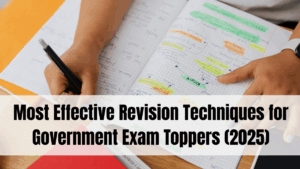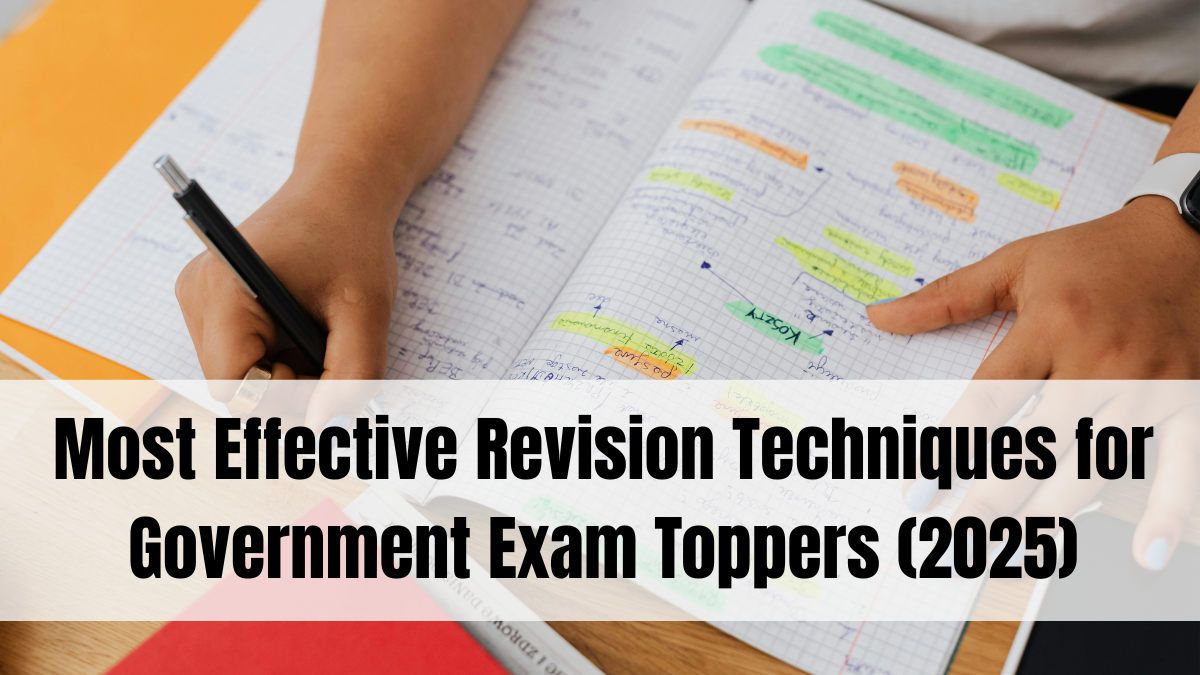Preparing for government exams in India is a rigorous journey demanding discipline, strategy, and smart study habits. With the increasing competition in 2025, adopting effective government exam revision tips 2025 is crucial to boost retention, reduce stress, and maximize performance on exam day.
Learning from past toppers, educators, and experts, this guide reveals proven techniques that help aspirants confidently tackle exams like UPSC, SSC, Railway, and State PSCs.

Create a Structured Revision Plan
A well-organized revision schedule divides your preparation into manageable phases. Key aspects include:
-
Prioritize high-weightage topics and difficult subjects early.
-
Allocate specific time slots daily for revision sessions.
-
Include regular short breaks to maintain focus and avoid burnout.
-
Use milestone goals to track progress and motivate consistent study.
Structured planning prevents last-minute cramming and builds steady confidence.
Use Active Recall and Spaced Repetition
Active recall — testing yourself without looking at notes — strengthens memory far better than passive reading. Combine this with spaced repetition, where you revisit topics at increasing intervals.
Tools to help:
-
Flashcards (physical or apps like Anki) for quick Q&A practice.
-
Mind maps to connect concepts visually.
-
Self-made quizzes after each topic revision.
These techniques ensure information moves from short-term to long-term memory effectively.
Practice with Previous Year Papers and Mock Tests
Solving previous years’ question papers and timed mock tests is indispensable.
Benefits include:
-
Familiarity with exam pattern and question types.
-
Time management skills under exam conditions.
-
Identifying weak areas for targeted revision.
-
Reducing anxiety by simulating real exam scenarios.
Incorporate mock tests regularly, increasing frequency as exams approach.
Focus on Conceptual Understanding Over Rote Learning
Understanding the underlying concepts rather than memorizing answers enables flexibility in tackling unpredictable questions.
Strategies:
-
Explain topics aloud or teach them to someone else.
-
Use real-life examples or case studies to relate concepts.
-
Break complex ideas into simple, digestible parts.
This builds deeper comprehension and analytical skills valued in competitive exams.
Maintain Health and Manage Stress
Physical and mental well-being directly impact revision efficiency. Toppers recommend:
-
Regular exercise or yoga to boost concentration.
-
Balanced nutrition and adequate hydration.
-
Mindfulness or meditation to manage exam-related stress.
-
Consistent sleep patterns for memory consolidation.
A healthy body and mind create the best environment for effective study.
FAQs
How far in advance should I start revision for government exams?
Ideally, start focused revision 3–4 months before the exam date for comprehensive coverage.
What is the best way to retain large volumes of information?
Active recall combined with spaced repetition is proven most effective.
How important are mock tests in revision?
Mock tests are critical for time management, exam familiarity, and self-assessment.
Should I focus more on weaker subjects during revision?
Yes, allocate extra time to topics where you score low but maintain practice in stronger areas.
How can I reduce stress during exam preparation?
Maintain a balanced lifestyle with regular breaks, physical activity, and mindfulness exercises.
Click here to know more.




